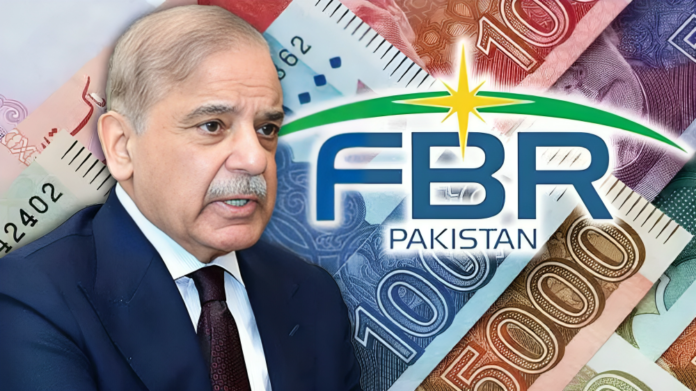Under the much-anticipated FBR Reforms, Prime Minister Shehbaz Sharif has approved a comprehensive transformation plan aimed at addressing tax evasion among the wealthiest one percent of Pakistan’s population. This initiative targets approximately 600,000 affluent individuals who have been identified for their significant involvement in under-filing and null filing of tax returns.
Their actions have resulted in an alarming annual tax evasion totaling Rs 1.3 trillion. The FBR Reforms reflect a strategic effort to bridge the substantial tax gap plaguing Pakistan’s economy, which currently stands at Rs 7.1 trillion across all taxation categories.
To enforce compliance, the Federal Board of Revenue (FBR) has prepared a draft for proposed legislation to be enacted through a mini-budget or ordinance. This includes severe punitive measures against tax evaders, such as freezing bank accounts, prohibiting purchases of immovable property and vehicles, and barring investments in the stock market. The initiative is designed to facilitate a more robust tax collection framework and curb rampant tax evasion.
Implementation Timeline and Financial Strategies of FBR Reforms
The ambitious FBR Reforms are set to be implemented over three years, with an estimated budget of Rs 137 billion. Funding for these reforms will primarily come from loans provided by multilateral creditors, including an extension of revenue collection efforts from the World Bank and a potential new loan from the Asian Development Bank (ADB). Furthermore, the current budget will be increased to accommodate higher salaries for employees within the Super Large Taxpayer Units (LTUs) based in Karachi, ensuring that the FBR has the necessary resources to enforce compliance effectively.
To combat issues like smuggling and under-invoicing, the FBR Reforms propose establishing advanced check-posts at 24 strategic bridges on the Indus River, equipped with cutting-edge scanning technology. Additionally, drone surveillance will be utilized to enhance monitoring efforts and tighten the net around tax evaders. The FBR will also develop a data-sharing mechanism with the State Bank of Pakistan (SBP) for individuals earning over Rs 10 million annually, enforcing limits on cash deposits and withdrawals to ensure reported income matches actual financial transactions.
Challenges and Economic Impact of FBR Reforms
While the FBR Reforms initiative appears promising, independent tax experts caution that the real test lies in the government’s political will to implement these reforms effectively. Among those in the top one percent, who earned an average of Rs 13.2 million, only Rs 499 billion in taxes was paid, resulting in losses of Rs 1,300 billion due to under-filing practices.
A detailed presentation by FBR Chairman Rashid Mahmood Langrial revealed significant trends among high-income earners, indicating a considerable gap in tax compliance.
Also Read: FBR Proposes New Tax Crackdown Amid IMF Pressure
Despite these challenges, the FBR aims to establish Super LTUs in Karachi, with plans to replicate this model in other major cities like Lahore and Islamabad. Officers in these units will be incentivized based on performance, promoting a competitive environment focused on enhancing tax collection.
Also Read: FBR Announces Final Deadline for 2024 Income Tax Returns
The success of the FBR Reforms will not only bolster revenue but also contribute to Pakistan’s broader economic recovery, which is further supported by recent developments such as the establishment of international-standard textile parks through a partnership with the Chinese firm RUYI Shangdong.
Also Read: Govt Plans Mini-Budget to Raise Taxes by Rs. 650 Billion


